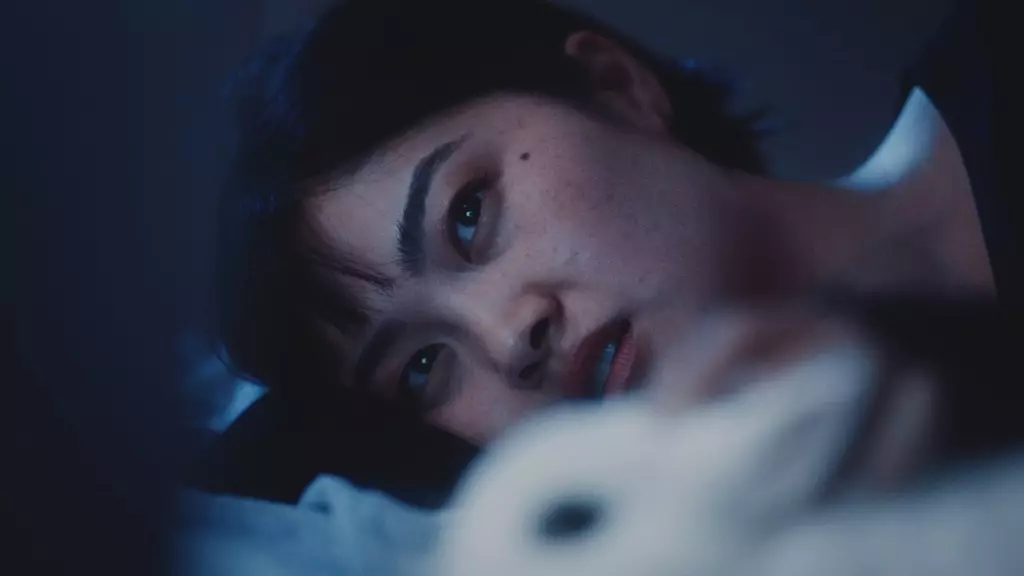Katarina Zhu’s debut film, “Bunnylovr,” is far from a conventional exploration of the intricacies of modern relationships. Instead, it dives into the murky waters of self-identity, privilege, and the quest for fulfillment in an overwhelmingly digital landscape. As both writer and director, Zhu crafts a compelling story that resonates with anyone who has grappled with their connections to loved ones and the often disturbing dynamics that accompany them. The film’s protagonist, Becca, navigates her tumultuous 20s in New York City, illuminating the widespread struggles of her generation through an intimate and deeply personal lens.
At the heart of “Bunnylovr” is Becca, portrayed by Zhu herself, who embodies the conflict faced by many young adults trying to bridge their aspirations with their subterranean realities. By day, she attempts to carve out an identity for herself in a city bustling with ambition, while by night, she dons the guise of a cam girl, wrestling with societal expectations and her perceived self-worth. The introduction of a live bunny named Milk—a gift from a persistent and troubling client—serves as a catalyst for Becca’s journey toward self-acceptance.
This dual existence reflects the broader themes of fetishization and objectification prevalent in contemporary relationships. Becca is no stranger to being reduced to her physical appearance or utility, whether by her estranged father, her best friend Bella, or her exploitative ex-lover Carter. The weight of these connections constrains her, laying bare the tremendous pressure to conform to external expectations.
The film underscores a profound and poignant exploration of paternal relationships, particularly the absence of a father’s influence. Becca’s interactions with her dying father, William (played by Perry Yung), offer a compelling commentary on the complexities of familial bonds juxtaposed with the urgency of real-time interactions in the digital age. Their chance encounter encapsulates years of unresolved tension, a fragile yet poignant thread that connects Becca to her past even as she strives to break free.
This narrative is further complicated by her relationship with John, her cam client—who symbolizes the extractive nature of many male-dominated exchanges that are shrouded in the guise of companionship. While he financially compensates Becca for her virtual presence, she soon finds herself entwined in an emotionally charged environment that challenges her boundaries. Here too, Zhu criticizes the power imbalances that permeate modern intimacy, illuminating the struggle to balance material gain with emotional labor.
The presence of Milk the bunny acts as a significant plot device in the unfolding of Becca’s character arc. Initially reluctant to accept the pet—viewing it as another source of constraint—Becca eventually finds joy and protection in caring for Milk, signaling a deeper awakening to her needs and aspirations. This relationship with her pet becomes emblematic of her journey, as she strives to reclaim ownership over her life and the narrative surrounding her.
In this way, “Bunnylovr” transcends its surface-level satirical observations of online interactions. Instead, Zhu uses the bunny to illustrate Becca’s gradual shift from a life dictated by toxic relationships to one of self-actualization. The film’s poignant conclusion offers a sense of resolution, allowing its protagonist to embrace the nuances that come with self-love and compassion.
Ultimately, “Bunnylovr” is an invaluable commentary on the struggles facing today’s individuals as they seek genuine connection amid a plethora of superficial encounters. Zhu’s evocative direction and layered storytelling invite viewers to reflect on their own experiences of connection and disconnection. As Becca journeys through realms of privilege, loneliness, and empowerment, her story resonates not just as an exploration of personal identity, but as a call for all individuals to seek their truth amid the incessant noise of the digital age. This heartfelt debut stands as a testament to the resilience of the human spirit and the power of self-love in reclaiming one’s identity.

